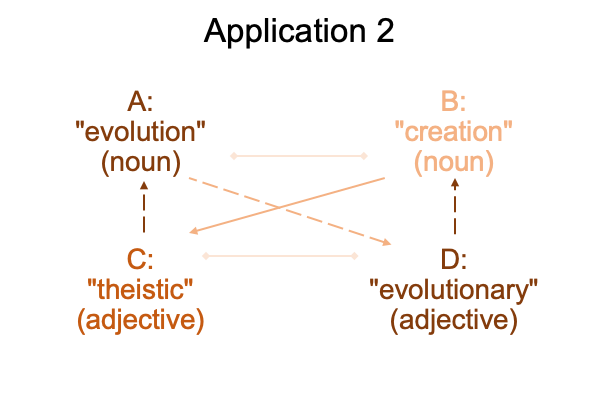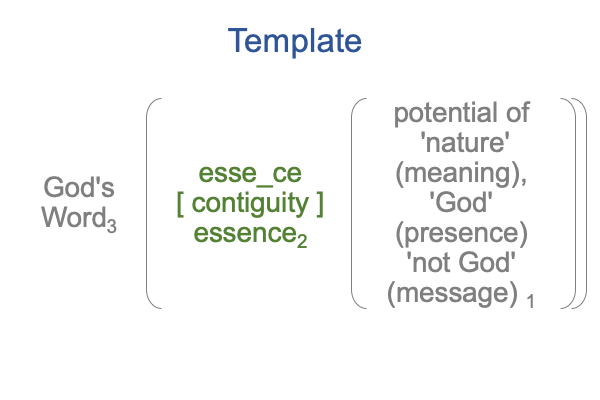0807 Chapter six of Theistic Evolution is titled, “Evolution and Creation”.
If evolutionary processes and transformations (A1) occur throughout the history of the created universe (D2), then we (B3) should treat evolutionary processes as an integral part of divine governance of the created world (B3), leading to its eschatological fulfillment (C4).
0808 Should we treat evolutionary processes (A) as intrinsic to God’s creation (D)?
Or should we (B) consider Thomistic terms, such as creatio ex nihilo, creatio continua, rationes seminales, transformation and governance as intrinsic to evolution (C)?
Ah, I am thrown back to a point well before Tabaczek’s banquet.
In the Greimas square, C qualifies A and D qualifies B.

Which will I follow, evolutionary creation or theistic evolution?
Uh-oh, I am starting to feel that I am going to be handed a bill for the meal.
Pay the bill before dessert?
0809 What on earth will dessert be?
Will it consist in the way that the meaning of nature is compounded with the presence of God and the message that the creation (that is, nature itself) is not God?
This is precisely what my impression of the Creation Story offers.

0810 What does the spoken word, “nature” mean1 when it underlies um… the actuality of what we recognize as things in the world2.
After all, all natural things have esse_ce and essence. It is only when their contiguity, their substance, is revealed to be a creation of God that we become aware that all natural things2 occur in the normal context of God’s word3, which is also God’s Self-Manifestation3a, and with the potential1 of natural meaning.
What is the message of natural meaning?
Nature is not God.I think that may indicate that there will be a decorative swirl in the dessert.
